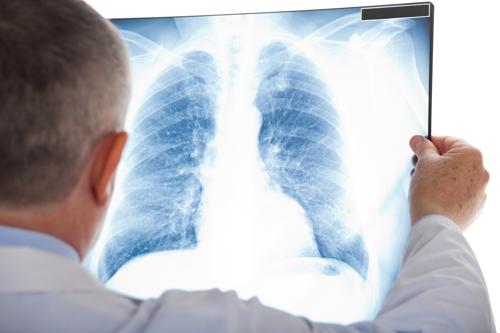
OPD Patients
Happy Patients
Seminar
Year Experience
As the name suggests, the chest wall is a protective bony structure made up of the rib cage and breast bone (sternum), protecting vital organs like the heart and lungs. Despite a rigid frame, the chest wall demands extensive care as it helps respiration.
Chest wall tumours are tumours occurring in the walls of the chest cavity. They are characterized by abnormal cell growth that can be cancerous or non-cancerous. However, around 60% of all chest wall tumours are cancerous.
Your chest walls are made of soft tissues, bone, and cartilage. Chest wall tumours can form in any of these areas. In most cases, tumours are formed in the bone (especially the rib cage) or the cartilage.
There are two major types of chest wall tumours – primary and secondary. Primary chest wall tumours begin in your chest walls and keep growing if rendered untreated. Secondary chest wall tumours begin somewhere else and spread to the chest wall.

Less than 1 in 50 people are affected by primary chest wall tumours. The most common non-cancerous chest wall tumours are chondromas (slow-growing tumours made up of cartilage forming in bones or soft tissues) and osteochondromas (a bone and cartilage overgrowth occurring at the bone’s end near the growth plate). The most common cancerous chest wall tumours are sarcomas (cancers including fat, cartilage, muscle, blood vessels, fibrous tissue, or other connective tissue originating from the bone or soft tissue).
In most cases, the chest wall tumours found in children are primary. On the other hand, secondary chest wall tumours are common in adults.
Here are some of the major symptoms of a benign (non-cancerous) chest wall tumour:
A malignant (cancerous) chest wall tumour will have similar symptoms, chest expansion, and/or impaired chest movement.
Here are a few more signs that should prompt you to seek medical help regarding chest wall tumours:
While there are no clear causes for chest wall tumours, factors like diet, lifestyle choices, and heredity are known to have increased the risk of the tumours.
Chest wall cancers can be diagnosed via biopsies and imaging tests (X-ray, CAT Scan, PET scan, MRI, etc.). Healthcare providers may run these tests if you report the right symptoms and they sense the need for a thorough diagnosis. At times, doctors may also diagnose chest wall tumours using imaging tests done for other purposes (incidental diagnosis).
Generally, imaging tests confirm the presence of chest wall tumours. Our Chest Specialist may suggest a biopsy if the tumours are not found through these tests despite the symptoms.
Once diagnosed, the treatment for a chest wall tumour generally includes the following:
Our doctor will give you the most suitable timing and sequence for different treatments. For example, they may recommend chemotherapy before surgery to reduce the tumour’s size, making its removal easy.
Once your chest wall tumour treatment is completed, the doctor will explain a follow-up plan to you and your family members, letting you know how often you need to visit for follow-ups.
As you recover from the tumour, make sure you follow our best Chest wall tumor expert in Gurgaon, Delhi advice on the following matters:
Copyright 2026 © Dr .Parveen Yadav all rights reserved.
Proudly Scaled by Public Media Solution!